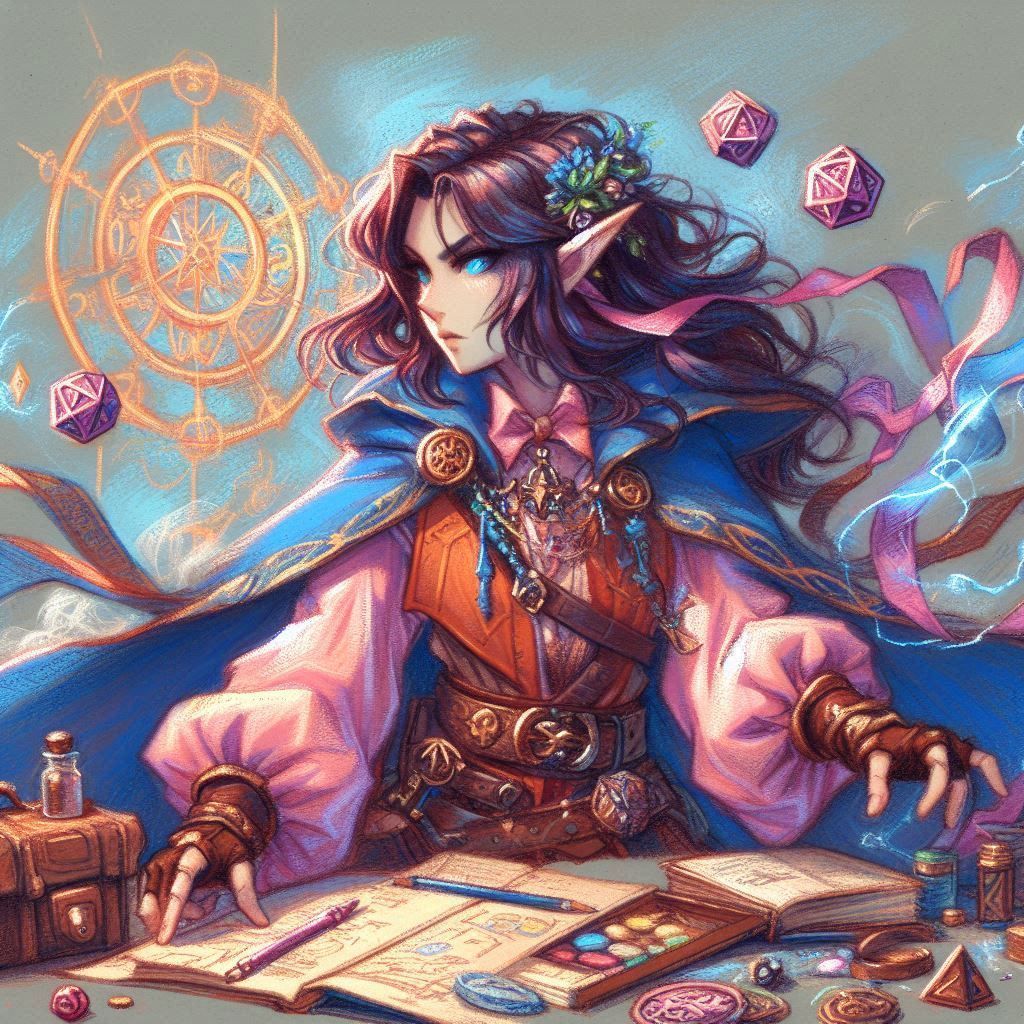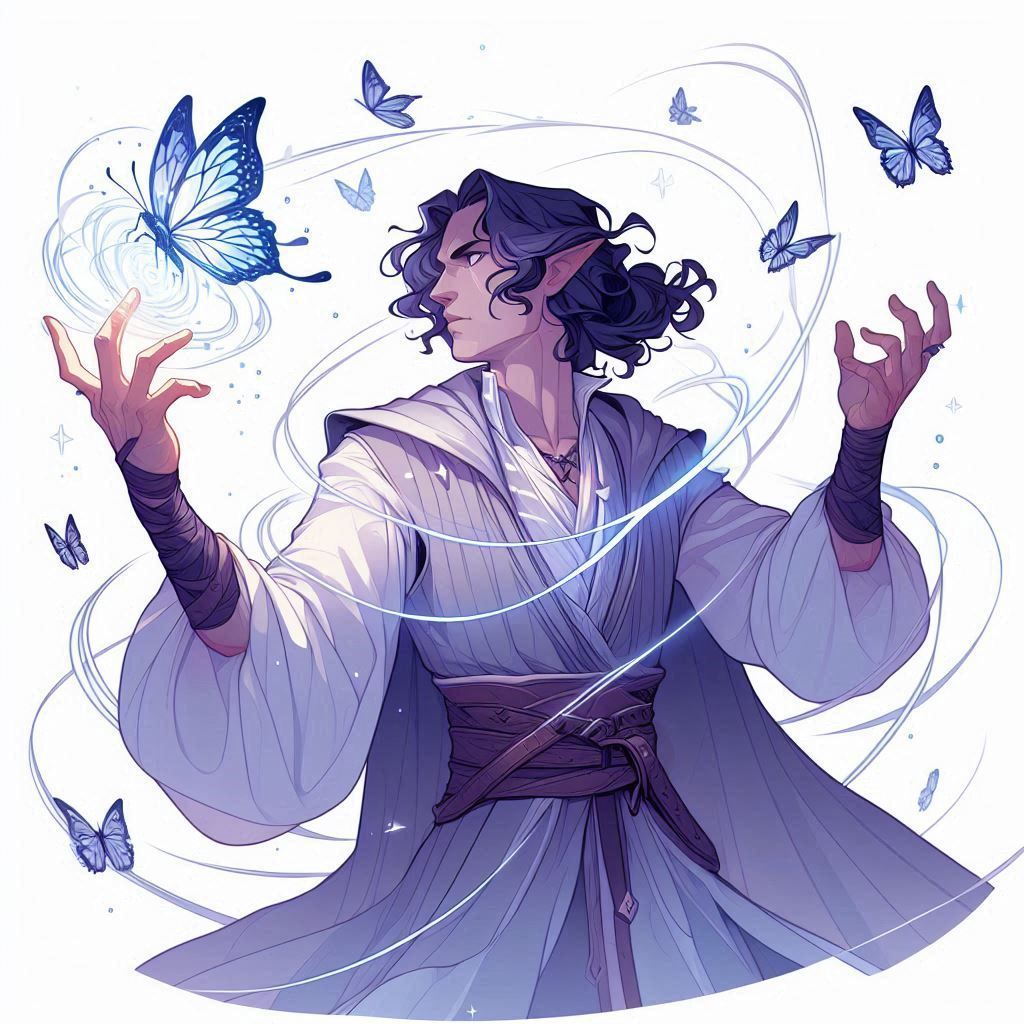- Disruptive Thoughts: The target must succeed on a Wisdom save or subtract a d6 roll from its next attack roll.
- Empowered Focus: The target may add a d6 roll to an attack or saving throw before your next turn.

Psionic Subclasses

Skill & Tool Proficiencies. You gain proficiency in one skill of your choice from Deception, Performance, History, or Persuasion. You also gain proficiency with one musical instrument of your choice, which you can use as a spellcasting focus.
Psychic Echo. When you cast Vicious Mockery, you can shape it into a 15-foot cone that originates from you. Each enemy in the cone must succeed on a Wisdom saving throw against your spell save DC or take psychic damage and have disadvantage on its next attack roll before the end of its next turn. Allies are immune to this effect.
Echoing Range. The cone’s length increases to 30 feet at 6th level, 45 feet at 11th level, and 60 feet at 16th level.
When you use your Bardic Inspiration feature or cast a Divination, Abjuration, or Enchantment spell to restore hit points to a creature or grant it a benefit, you can also grant it a Bardic Inspiration die.
The die is a d6. Once a creature has the die, it can roll the die and add the number rolled to one ability check, attack roll, damage roll, saving throw, or AC against one attack. A creature can have only one Bardic Inspiration die at a time.
You can use this feature a number of times equal to your Charisma modifier (minimum of once), and you regain all expended uses when you finish a long rest. The die increases to a d8 at 5th level, a d10 at 10th level, and a d12 at 15th level.
When you cast Vicious Mockery in its cone form, you add your Charisma modifier to the damage it deals. Additionally, allies in the vicious mockery cone gain temporary hit points equal to the psychic damage dealt.
Whenever you grant a creature a Bardic Inspiration die, it also regains hit points equal to the number rolled plus your Intelligence modifier.
In addition, when you make a Dexterity saving throw, you can choose to use your Wisdom saving throw modifier instead of your Dexterity modifier.
You gain mastery of social grace. Once per turn, when you make a Charisma (Persuasion) check, you can treat a roll of 7 or lower on the d20 as an 8.
Charming Flourish. As an action, you can initiate a contest: you make a Charisma (Persuasion) check contested by a creature’s Insight. The target must understand you and hear you clearly.
- If the target is hostile and loses the contest, it must use its reaction to move up to its speed and make one weapon attack against you. Until it attacks you or you move more than 60 feet away, it has disadvantage on attack rolls against targets other than you and can’t make opportunity attacks.
- If the target is not hostile and loses the contest, it is charmed by you for 1 minute or until you or your allies attack it.
Once per turn when you cast a Bard spell or use Bardic Inspiration, you can target a second creature within range with the same effect.

You gain proficiency in the Insight skill.
As a bonus action, you can expend one Vision Die to grant one creature you can see within 60 feet a 1d6 vision die. The creature may roll that Vision Die and add the number rolled to one ability check, attack roll, or saving throw. The marker is then expended.
You can use this feature a number of times equal to your Intelligence modifier (minimum of once), and you regain all expended uses when you finish a long rest. The Vision Die increases to a d8 at 6th level, a d10 at 11th level, and a d12 at 16th level.
When an ally within 30 feet drops to 0 hit points, you can spend one Vision Die as a reaction. That ally regains hit points equal to the spent die’s result + your Intelligence modifier at the start of their next turn if they are still at 0 hit points but not dead.
You learn the telekinesis spell. It doesn’t count against the number of spells you know. Once you cast telekinesis in this way, you can’t cast it again until you finish a long rest. When you cast it this way, you cast it at 5th level, or you may spend a higher-level spell slot to cast it using that slot.
When you finish a long rest, roll two d20s and record the results as your Portent Dice. You can replace any attack roll, saving throw, or ability check you or an ally within 60 feet makes with one of these dice. You choose to do so before the roll is made. Once you use a Portent Die, it is expended; you regain both dice when you finish a long rest.
Your mastery of psychic currents is so complete that mundane concentration cannot bind your will. You no longer need to concentrate on the Telekinesis spell. Its effects persist on you or your targets even if you cast other spells or take damage.

You gain proficiency with all armor and shields, and you gain proficiency in the Religion skill.
In addition, when you don armor or wield a shield, it is psychically created—manifesting as shimmering energy molded to your form. You can summon or dismiss this armor or shield as a bonus action; it requires no material components and vanishes if it leaves your possession or you become unconscious.
You can cast the Shadow Blade spell at will, using your highest available spell slot level, without expending a slot.
In addition, when you cast Shadow Blade in this way, it does not require concentration. If you learn Shadow Blade and cast it normally, you can dual-wield the blades.
You can attack twice, instead of once, whenever you take the Attack action on your turn.
As a reaction, when a creature targets you or an ally within 60 feet with an attack, you can force it to make a Wisdom saving throw against your spell save DC.
On a failed save, the creature loses the attack and cannot target that creature again until the start of your next turn. On a successful save, the creature is immune to this effect until the start of your next turn. You can use this feature a number of times equal to your proficiency bonus, and you regain all uses after a long rest.
Once per long rest, you can unleash a wave of psychic energy. All creatures of your choice within a 15-foot radius must make an Intelligence saving throw against your Psionic spell save DC.
On a failed save, a creature takes 4d10 psychic damage and is stunned until the end of its next turn; on a successful save, it takes half as much damage and is not stunned. You can also expend a 3rd-level or higher spell slot to use this feature again, increasing the psychic damage by 1d10 for each slot level above 3rd.
You have mastered the art of blending spellcasting with martial prowess. When you use your action to cast a Psionic spell, you can make two weapon attacks as a bonus action.

You learn the Minor Illusion cantrip. If you already know it, you learn a different support cantrip of your choice. This cantrip doesn’t count against your number of cantrips known.
In addition, when you cast Minor Illusion , you can create a visual image, accompanying sound, and faint scent with a single casting.
You learn the Dancing Lights cantrip, which does not count against your cantrips known.
In addition, when you cast Dancing Lights , you can use an action to throw one of the lights at a creature within 60 feet. Make a ranged spell attack; on a hit, the target takes psychic damage equal to 1d8 + your Intelligence modifier. The lights can take any shape you choose, but must be small or tiny. This extra damage increases by 1d8 at 5th level (2d8), 11th level (3d8), and 17th level (4d8).
You can create an illusory duplicate of yourself as a reaction when a creature makes an attack roll against you. The attack automatically misses, and the illusion then dissipates.
Once you use this feature, you can’t do so again until you finish a short or long rest, unless you expend a spell slot.
Your mastery over prismatic flames allows you to unleash greater power. When you use your Prismatic Flames ability, you can summon and throw up to two radiant orbs simultaneously.
Each orb can target the same or different creatures within range. Make a separate attack roll for each orb.
You can cast Prismatic Wall once without expending a spell slot. You regain the ability to do so when you finish a long rest.
While your Prismatic Wall is active through this feature, you can use the following effects:
- Lightshift Step: Once per turn, teleport up to 30 feet to an unoccupied space adjacent to the wall within 60 feet. This movement does not provoke opportunity attacks.
- Radiant Echo: As a bonus action, choose one creature within 60 feet of the wall that can see it. The creature must succeed on a Charisma saving throw against your Psionic spell save DC or take 3d10 psychic damage and have disadvantage on all attack rolls until the end of its next turn.
- Warding Refraction: When an ally within 60 feet of the wall takes damage, you can use your reaction to reduce the damage by 4d10. That ally also gains advantage on their next saving throw before the start of your next turn.
Psionic of Strixhaven Subclasses

You gain proficiency in your choice of two of the following skills: Deception, Intimidation, Performance, Persuasion, or Insight.
You learn one cantrip of your choice, either Sacred Flame or Vicious Mockery , and the Silvery Barbs spell which counts as a 1st level spell for you. These don’t count against the number of cantrips or spells you know, and it is added to your class spell list if it isn’t there already.
You can cloak your words in shadows. When you cast a spell that imposes a condition (such as frightened, charmed, or restrained), you can also cause the target to have disadvantage on their next saving throw against a spell you cast before the end of your next turn.
You can use this feature a number of times equal to your proficiency bonus, regaining all uses on a long rest.
You learn the Darkness spell, added to your class spell list if not already there.
When you cast the spell in this way, you can see normally through the darkness created, and when a creature you can see starts its turn in the darkness, you can deal 2d10 psychic damage to that creature.
You can cast the spell without expending a spell slot once per long rest.
When you cast a spell that deals damage, you can invoke additional words of power to change the spell’s damage type to psychic or radiant. Any creature damaged by the spell takes extra damage equal to your proficiency bonus and is either frightened (psychic) or charmed (radiant) until the start of your next turn.
When a creature you can see within 60 feet takes damage, you can use your reaction to grant the creature resistance to that damage and reduce it by an amount equal to your Charisma modifier.
As a bonus action, grant yourself and up to three creatures within 30 feet resistance to all damage until the start of your next turn.
While protected, if a creature takes damage, the damaging creature takes psychic damage equal to your Charisma modifier.
You can use this feature once per long rest, or by expending a 5th-level (or higher) spell slot.

You gain proficiency in two of the following skills of your choice: Acrobatics, Athletics, Nature, or Performance.
You can Dash as a bonus action. When you take this bonus action, choose one of the following additional effects:
- Boreal Sweep. Icy water swirls around you. Until the end of your turn, you can move across the surface of water as if it were harmless solid ground. Additionally, when you leave a space within 5 feet of a creature, you can force that creature to make a Strength saving throw against your spell save DC. On a failed save, the creature is knocked prone. A creature can be affected by the water only once each turn.
- Scorching Whirl. Flames wreath your steps. Once before the end of your turn, you can force each creature within 5 feet of you to make a Dexterity saving throw against your spell save DC. On a failure, a creature takes fire damage equal to 1d4 + your spellcasting modifier.
- Thunderlight Jaunt. You take on a nimble lightning form. Until the end of your turn, you can move through the space of other creatures, and you do not provoke opportunity attacks. If you end your turn inside a creature’s space, you are pushed into the nearest unoccupied space.
You can use a bonus action in this way a number of times equal to your proficiency bonus, and you regain all expended uses when you finish a long rest.
You have honed your forms of elemental expression to best suit your ideas. Choose one of the following damage types: cold, fire, or lightning. You gain resistance to that damage type.
Additionally, when you cast a spell using a spell slot that deals the chosen damage type, you emit a spectacular aura of artistry, which extends 5 feet from you in every direction (but not through total cover) and lasts until the end of your next turn. While the aura is active, each creature of your choice has resistance to your chosen damage type while within the aura, as you shape your favored elemental medium around them.
You can change your choice of damage type whenever you finish a long rest.
Honing your talents, you skillfully infuse your motions with even more potent expressions of elemental might. Once per turn when you deal damage to at least one target, you gain an additional effect determined by the damage type chosen for your Favored Medium feature:
- Cold. One of the targets of your choice takes an additional 1d6 cold damage and must make a Constitution saving throw against your spell save DC. On a failed save, the target’s speed is reduced by 10 feet until the end of its next turn, as ice mires it. A target can be affected by the ice only once per round.
- Fire. One of the targets of your choice takes an additional 1d6 fire damage. Fortifying flames then dance around one creature of your choice within 30 feet of you. The chosen creature gains 1d6 temporary hit points.
- Lightning. One of the targets of your choice takes an additional 1d6 lightning damage and must make a Dexterity saving throw against your spell save DC. On a failed save, the target is unable to take reactions until the end of its next turn, as residual lightning shocks its form.
Your relentless dedication and training have instilled an outstanding sense of precision and grace in your art. You gain proficiency in Dexterity saving throws if you do not already have it.
Additionally, when you make a Dexterity saving throw, you can treat a d20 roll of 9 or lower as a 10.
At 19th level, your control over your elemental expression becomes a breathtaking masterpiece. When you cast a spell that deals your Favored Medium damage type, you can choose to empower it further. The spell deals maximum damage instead of rolling.
You can use this feature once per long rest.

